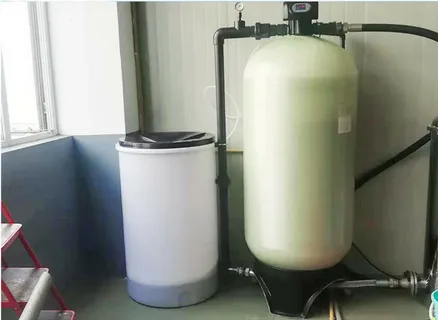Water is essential for life, yet the water that flows from our taps may not always be as clean and safe as we assume. With concerns about contaminants, chemicals, and impurities growing, more homeowners are looking for ways to improve their water quality. One of the most effective solutions is a residential drinking water filtration system, which ensures that the water you and your family drink is pure, clean, and healthy. Having a reliable filtration system installed in your home is no longer a luxury—it’s a necessity.
Investing in a residential drinking water filtration system can significantly enhance the safety and taste of your household water. Whether you’re concerned about chlorine, lead, pesticides, or other harmful substances, a filtration system can remove or reduce these contaminants. For homes that rely on municipal water supplies, which may still contain trace amounts of chemicals even after treatment, a residential drinking water filtration system adds an extra layer of security. This ensures that you and your loved ones are consuming only the cleanest water possible.
Why Water Filtration is Essential
The water that comes into your home may look clean, but it can still harbor invisible contaminants that could be harmful over time. These contaminants can include heavy metals like lead, industrial chemicals, bacteria, viruses, pesticides, and pharmaceutical residues. Many of these pollutants can seep into water supplies from environmental factors or outdated infrastructure, making it difficult to completely rely on municipal water treatment processes.
According to the Environmental Protection Agency (EPA), while public water systems do their best to ensure the water is safe, they may not catch everything. As a result, even small amounts of contaminants can slip through and end up in your drinking water. Long-term exposure to these contaminants, even in low levels, has been linked to serious health issues, including cancer, developmental problems in children, and immune system disruptions.
Benefits of Installing a Residential Drinking Water Filtration System
1. Improved Water Quality
A residential drinking water filtration system improves the overall quality of your tap water by filtering out contaminants. This can include harmful bacteria, viruses, chemicals, heavy metals, and other substances that pose a risk to health. By filtering out these impurities, the water becomes safer and healthier to consume.
2. Better Taste and Odor
Unfiltered tap water often contains chlorine and other chemicals that can affect its taste and smell. One of the key advantages of a residential drinking water filtration system is that it removes these chemicals, resulting in fresher, better-tasting water. Many people find that they drink more water after installing a filtration system because it simply tastes better.
3. Healthier Water for Cooking
Not only is filtered water safer to drink, but it’s also healthier for cooking. When you use unfiltered water in cooking, harmful substances can still find their way into your food. By using filtered water, you’re ensuring that your family is not ingesting unwanted chemicals and contaminants through the meals you prepare.
4. Environmental Benefits
By installing a residential drinking water filtration system, you reduce the need for bottled water, which has a significant environmental impact. Bottled water requires extensive resources to produce, transport, and dispose of the plastic bottles, contributing to pollution and environmental degradation. By using a filtration system, you can help decrease your reliance on plastic bottles, reducing your household’s carbon footprint.
5. Cost Savings
While there’s an initial investment in a residential drinking water filtration system, it pays off in the long run. The cost of bottled water adds up quickly, and the money spent on purchasing cases of water could be better invested in a long-term solution like a filtration system. Over time, a filtration system proves to be a cost-effective way to ensure clean water at home.
Different Types of Residential Drinking Water Filtration Systems
1. Activated Carbon Filters
Activated carbon filters are among the most common and affordable types of water filtration systems. These filters work by trapping contaminants like chlorine, pesticides, and volatile organic compounds (VOCs) in their carbon surface. Activated carbon filters are often used in point-of-use filtration systems, such as faucet filters or pitcher filters, and they improve both the taste and odor of water.
2. Reverse Osmosis (RO) Systems
Reverse osmosis systems are highly effective in removing a wide range of contaminants from drinking water. They work by forcing water through a semi-permeable membrane that blocks impurities, including heavy metals like lead, nitrates, fluoride, and certain microorganisms. RO systems provide highly purified water, but they do require more maintenance and waste more water than other systems.
3. Ultraviolet (UV) Disinfection
Ultraviolet filtration systems use UV light to kill bacteria, viruses, and other pathogens in drinking water. While UV systems are excellent for sterilizing water, they are often used in combination with other filtration methods, as they don’t remove chemical contaminants or heavy metals.
4. Whole-House Filtration Systems
For those who want to ensure that all water entering their home is clean and safe, a whole-house filtration system is the best option. These systems filter water at the point of entry, providing purified water for drinking, cooking, bathing, and laundry. Whole-house systems are comprehensive, but they come with a higher initial investment and more complex installation.
Choosing the Right Filtration System for Your Home
Selecting the right residential drinking water filtration system depends on your specific water quality issues and household needs. It’s essential to get your water tested to identify the contaminants present before deciding on a filtration system. Some homes may only need a basic activated carbon filter, while others may require a more advanced reverse osmosis or UV system to address more serious water quality issues.
When choosing a system, consider factors like:
- Water usage: How much water does your household consume daily?
- Contaminants: What impurities are present in your local water supply?
- Installation and maintenance: How much maintenance are you willing to handle, and do you prefer a DIY or professionally installed system?
Conclusion
A residential drinking water filtration system is a vital investment in your home and family’s health. Not only does it improve the safety and quality of your drinking water, but it also enhances the taste, reduces your environmental impact, and offers long-term cost savings. Whether you’re considering a simple activated carbon filter or a more comprehensive reverse osmosis system, ensuring that your water is clean and contaminant-free should be a priority for every household.



